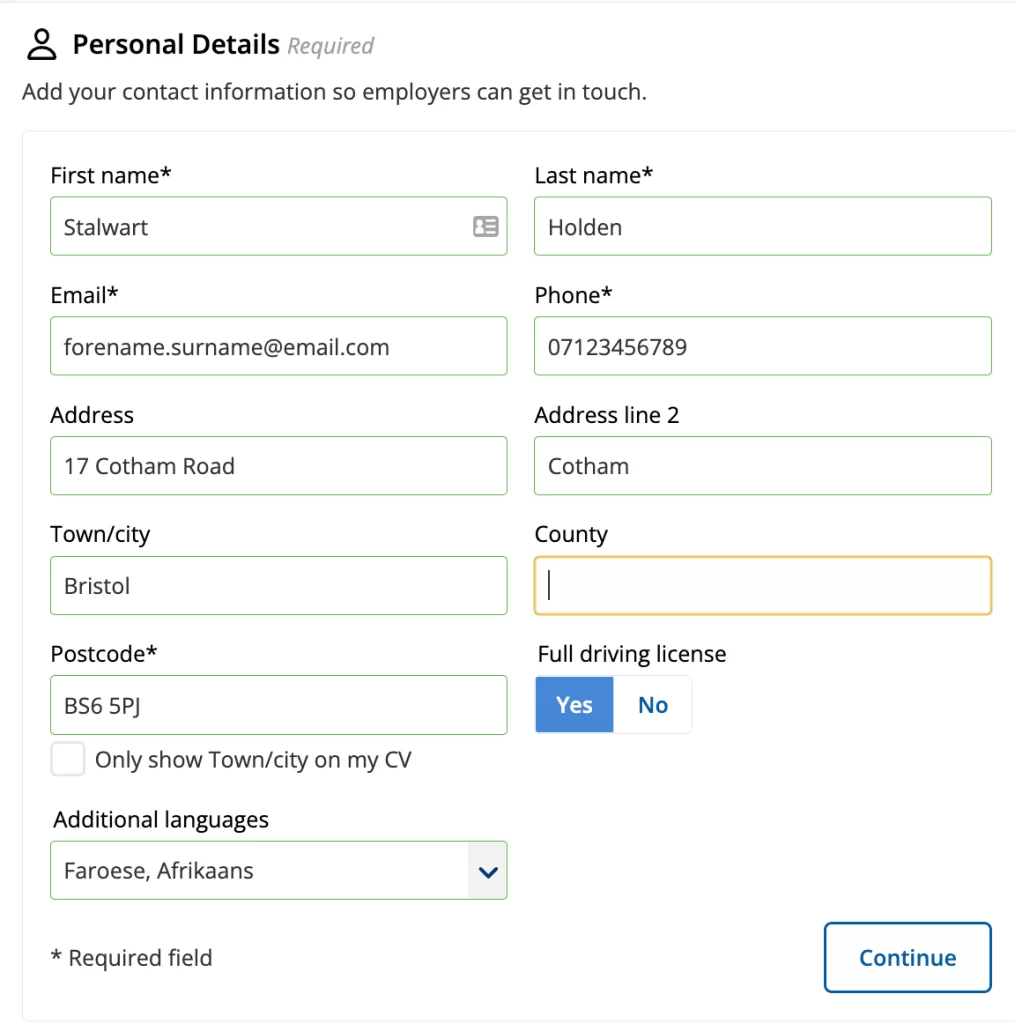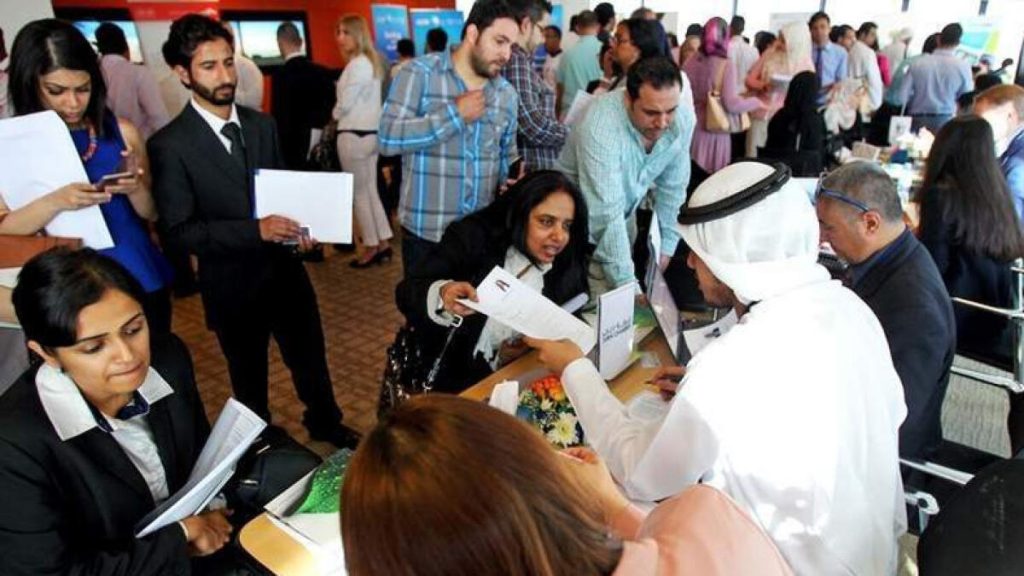The prospect of working abroad in countries such as Dubai, the United Kingdom, the United States, Australia, Canada, Germany, and Italy can be an exciting and rewarding opportunity. With their diverse economies and thriving job markets,
these countries attract a multitude of individuals seeking employment and career growth. In this article, we will explore the job market, provide tips on finding job opportunities, discuss important considerations like visa requirements, and offer guidance on settling in a new country.
Working in a foreign country offers numerous advantages, including exposure to different cultures, professional development, and the chance to broaden one’s horizons. Dubai, UK, USA, Australia, Canada, Germany, and Italy are countries known for their robust job markets,
offering a wide range of opportunities across various industries. However, navigating the job market in a different country can be a daunting task, requiring careful planning and preparation.
Table of Contents
2. The Job Market in Dubai, UK, USA, Australia, Canada, Germany, and Italy
Before diving into the specifics of finding job opportunities in these countries, let’s take a closer look at the job markets in each.

Overview of the job market in each country
Dubai, known for its booming construction and tourism sectors, attracts professionals from all over the world. The city offers opportunities in industries such as finance,
real estate, hospitality, and healthcare. The UK boasts a diverse job market, with major sectors including finance, technology, creative industries, and healthcare.
The United States, being a global economic powerhouse, offers job opportunities in a vast array of industries, including technology, finance, healthcare, and entertainment.
Australia is known for its strong economy and high standard of living, with job prospects in sectors like mining, healthcare, education, and hospitality.
Canada, renowned for its welcoming immigration policies, has a thriving job market in industries such as technology, healthcare, engineering, and natural resources.
Germany, being the largest economy in Europe, offers employment opportunities in sectors like engineering, automotive, pharmaceuticals, and finance.
Italy, with its rich cultural heritage, has a job market centered around fashion, tourism, design, automotive, and manufacturing industries.
Popular industries and sectors
In Dubai, the UAE’s vision for diversification has led to the growth of industries such as finance, technology, renewable energy, and healthcare. The UK excels in finance, technology, creative industries, engineering, and healthcare.
The United States is a hub for technology, finance, entertainment, healthcare, and engineering. Australia is renowned for its mining, healthcare, education, hospitality, and construction industries.
Canada offers opportunities in technology, healthcare, engineering, natural resources, and financial services. Germany is known for its engineering, automotive, pharmaceuticals, finance, and IT sectors. Italy is recognized for fashion, design, tourism, manufacturing, and automotive industries.
Step-by-Step Guide to CV Online Apply

In today’s digital age, the process of job hunting has undergone a significant transformation. With the advent of the internet, applying for jobs has become more accessible and efficient.
Gone are the days of printing out countless copies of your curriculum vitae (CV) and hand-delivering them to potential employers.
Nowadays, you can conveniently apply for jobs online from the comfort of your own home. In this article, we will explore the benefits of applying for jobs online and provide you with valuable tips on how to create an impressive online CV.
Benefits of Applying for Jobs Online
Convenience and Accessibility
One of the most significant advantages of applying for jobs online is the convenience it offers. Instead of spending hours traveling to different companies and dropping off your CV, you can simply upload it to various job portals or company websites
with just a few clicks. This saves you time and energy, allowing you to focus more on finding suitable job opportunities and preparing for interviews.
Furthermore, online job applications are accessible 24/7. You can submit your CV at any time, even outside traditional working hours. This flexibility allows you to apply for multiple jobs without being constrained by geographical limitations.

3. Finding Job Opportunities
When searching for job opportunities in Dubai, UK, USA, Australia, Canada, Germany, or Italy, it is essential to adopt a multifaceted approach.
Online job portals and websites
Online job portals and websites are valuable resources for finding job vacancies across various industries. Platforms like LinkedIn, Indeed, and Glassdoor provide a wide range of job listings and allow job seekers to create professional profiles, connect with recruiters, and apply for positions directly.
Networking and professional connections
Networking plays a crucial role in landing job opportunities. Building professional connections through networking events, industry conferences, and online communities can provide access to hidden job opportunities and valuable insights into the local job market. Joining professional associations and leveraging social media platforms like LinkedIn can help establish connections with industry professionals.
Recruitment agencies
Working with recruitment agencies can streamline the job search process. These agencies have industry-specific expertise and can match candidates with suitable job openings. Submitting your resume and partnering with reputable recruitment agencies increases your chances of being considered for relevant positions.
4. Resume and Cover Letter Tips
Crafting a compelling resume and cover letter tailored to each country’s standards and preferences is crucial for job seekers looking to make a positive impression. Here are some tips to keep in mind:
Tailoring your resume and cover letter for each country
It is essential to customize your resume and cover letter according to the expectations and norms of the country you are applying to. Research the local industry standards and incorporate keywords and phrases relevant to the job description. Highlight your most relevant skills, experience, and qualifications prominently.
Highlighting relevant skills and experience
Emphasize your skills and experience that align with the job requirements and the needs of the specific country’s job market. Showcase any international experience, language proficiency, and cross-cultural competencies. Consider including any certifications or qualifications that are recognized and valued in the country.
5. Visa and Work Permit Requirements

Before pursuing job opportunities abroad, it is crucial to understand the visa and work permit requirements of the respective countries. Each country has its specific rules and regulations governing the employment of foreign nationals.
Understanding the visa and work permit process
Research the visa and work permit process for each country thoroughly. Familiarize yourself with the various visa categories and the eligibility criteria for each. Determine if you require a job offer beforehand or if you can apply for a work permit independently.
Necessary documents and eligibility criteria
Gather the necessary documents required for visa and work permit applications, such as educational certificates, proof of work experience, and a valid passport. Check the eligibility criteria, including age restrictions, language proficiency requirements, and medical examinations, if applicable.
6. Interview Preparation
Securing an interview is a significant milestone in the job search process. Proper preparation can greatly enhance your chances of success.
Researching the company and role
Thoroughly research the company and the role you are applying for. Gain insights into the company’s values, culture, and recent achievements. Understand the responsibilities and requirements of the position to articulate your suitability during the interview.
Practicing common interview questions
Prepare for common interview questions and practice your responses. Anticipate behavioral questions, situational scenarios, and technical inquiries specific to your industry. Demonstrate your knowledge and skills effectively while highlighting your adaptability and problem-solving abilities.
Professional appearance and demeanor
Present yourself professionally during the interview process. Dress appropriately, maintain good posture, and make eye contact. Pay attention to your body language and convey confidence and enthusiasm. Be punctual and polite, both during in-person and virtual interviews.
7. Salary Expectations and Negotiation
Understanding salary expectations in the respective countries is crucial for negotiations and evaluating job offers.
Researching average salaries in the respective countries
Research the average salaries for similar roles and industries in each country. Take into account factors such as cost of living, taxes, and benefits when assessing the overall compensation package.
Negotiating job offers effectively
During the negotiation process, be prepared to articulate your value proposition and justify your desired salary. Highlight your skills, qualifications, and relevant experience to support your negotiation stance. Be open to compromise and consider other elements of the offer, such as professional development opportunities and work-life balance.
8. Cultural Differences and Work Etiquette
When working in a foreign country, understanding and respecting the local culture and work etiquette is crucial for professional success.
Understanding cultural norms in the workplace
Each country has its own set of cultural norms and expectations in the workplace. Learn about communication styles, hierarchy, and business etiquette. Be mindful of cultural differences in decision-making processes, time management, and work-life balance.
Communication styles and hierarchy
Adapt your communication style to the local norms. Understand the level of formality expected and the appropriate use of titles and greetings. Be mindful of hierarchical structures and protocols when interacting with colleagues, supervisors, and clients.
9. Settling in a New Country
Relocating to a new country for work involves more than just finding a job. Here are some essential aspects to consider when settling in a new country.
Finding accommodation and transportation
Research accommodation options and transportation systems in your destination country. Consider factors such as proximity to your workplace, safety, and cost of living. Explore public transportation options and familiarize yourself with local commuting routes.
Getting acquainted with local customs and traditions
Immerse yourself in the local culture by learning about customs, traditions, and social norms. Respect cultural sensitivities and adapt to local customs. Engaging in community activities and seeking opportunities to connect with locals can help facilitate the integration process.
Conclusion
Seeking job opportunities in Dubai, UK, USA, Australia, Canada, Germany, or Italy opens doors to exciting professional experiences and personal growth. By understanding the job markets, utilizing various resources, preparing meticulously, and adapting to cultural differences, you can enhance your chances of securing a rewarding job abroad. Embrace the adventure and seize the opportunity to broaden your horizons while building a successful international career.
FAQs
Q: Can I apply for jobs in these countries without a work permit?
A: In most cases, a work permit is required to legally work in these countries as a foreign national. However, some countries offer specific visa categories or programs that allow individuals to search for job opportunities while being present in the country.
Q: Are there any age restrictions for obtaining a work permit?
A: Age restrictions for work permits vary from country to country. While some countries may have age limits for certain visa categories, many do not have specific age restrictions for obtaining a work permit.
Q: How long does the visa and work permit process take?
A: The visa and work permit process duration varies depending on the country and the specific circumstances. It can range from a few weeks to several months. It is advisable to start the process well in advance to ensure a smooth transition.
Q: Do I need to speak the local language to get a job?
A: The language requirements for obtaining a job vary depending on the country and the specific industry. In some cases, fluency in the local language may be essential, while in others, English proficiency may be sufficient. Research the language requirements for your target country and industry.
Q: What are the best industries to find job opportunities?
A: The best industries for job opportunities vary depending on the country’s economic landscape and current trends. However, industries such as technology, finance, healthcare, engineering, and hospitality often offer promising job prospects in these countries.
